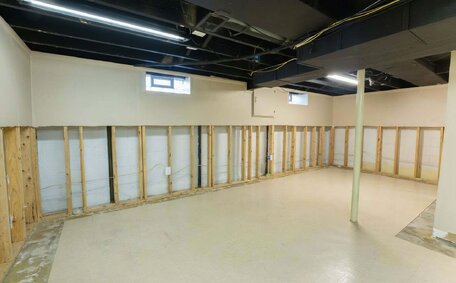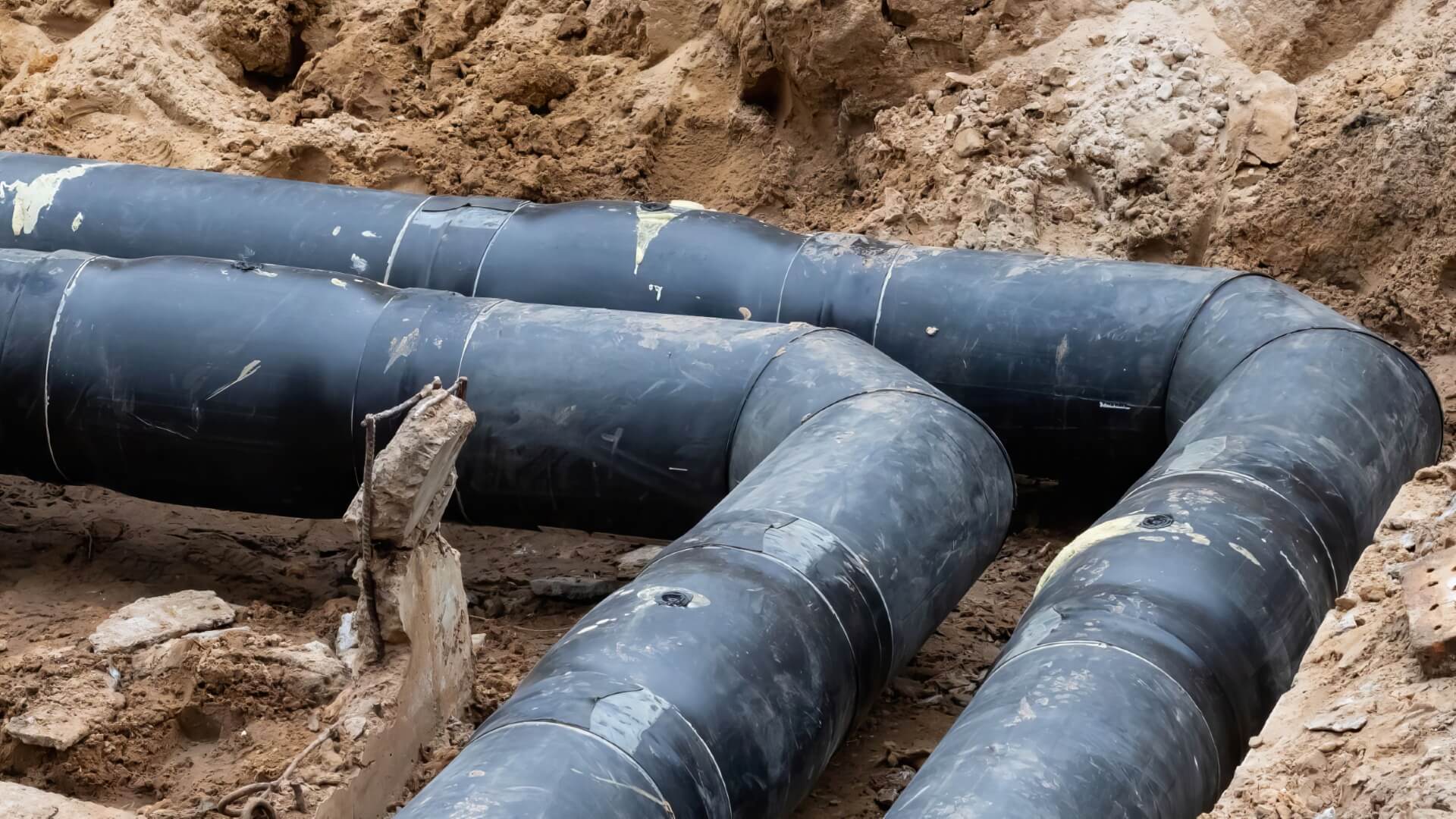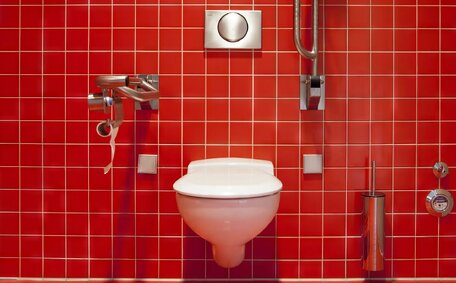Introduction: Why Does My Hot Water System Run Out of Hot Water?
It’s frustrating when showers or taps don’t deliver hot water. You step into your shower ready to wash away the day only to be met by a blast of water your skin wasn’t prepared for. Or perhaps, the taps in your kitchen churn out warm water at a trickle when you’re doing the dishes.
This issue can arise from several factors affecting your hot water system. The water heater could be improperly sized for your household’s needs, built up sediment may prevent heating efficiency, assessing the age of your hot water heater to identify potential inefficiencies, or there could be a leak.
Thankfully, with troubleshooting, you could solve your low water pressure and shortage issues. This guide will uncover the typical causes of diminishing hot water and offer practical advice on system inspection and upkeep.
Continue reading to learn how to restore a steady supply of hot water in your home.
Assessing Water Heater Size: Have You Outgrown Your System?
One significant challenge is determining if an undersized water heater should be upgraded to a heat pump system, particularly for growing households. A properly sized unit should be able to handle peak usage periods - like when you’ve got multiple showers running - ensuring there’s always enough hot water.
Water heater capacities typically range from 115 to 300 litres.
As your family grows or usage patterns change, your existing heater may become inadequate for daily requirements. Some signs you may have outgrown your hot water system include:
- Experiencing more frequent shortages of hot water
- Lukewarm rather than hot water coming from faucets
- Longer wait times for water to reheat after significant usage
Contact St Peters Plumbers today for an assessment of your current systems to ensure hot water will reliably come out of your fixtures. Based on the size of your household, number of bathrooms, usage patterns, and other factors, we highly recommend the ideal replacement to give your home an endless flow of hot water.
Sediment Buildup: Flush Out Gunk to Restore Hot Water
Sediment accumulation inside your hot water tank is another common culprit behind hot water shortages. Mineral deposits, rust flakes, and other debris inevitably gravitate to the surface of your tank, potentially affecting the dip tube. This gunk acts as a barrier, leaving the water too insulated from the heat source - reducing efficiency and availability of hot water.
To maintain optimal performance, it’s advisable to flush your water heater annually using the drain valve to clear sediment. This involves draining the tank, opening the flush valve, and spraying water inside to dislodge and expel debris, potentially resolving hot water system issues. It is highly recommended that you give us a call at St Peters Plumbing to have your unit professionally serviced.
Our licenced technicians will drain and thoroughly clean the interior of your gas electric water system. We use high-pressure flushing methods to remove even stubborn sediment accumulation and restore heating efficiency. Routine flushing extends the life expectancy of your water heater as well.
Avoid sediment from reducing your hot water supply; prompt professional service can prevent this. As Sydney’s trusted local plumbers, contact St Peters Plumbing today to schedule an appointment for hot water system maintenance.
Thermostat Issues: Set Correctly and Replace Faulty Ones
The thermostat, a crucial component of your gas water heater’s mechanism, controls the temperature of the hot water heating inside your system. It is normally set between 49°C to 60°C to ensure adequately hot water while preventing bacterial growth. An incorrectly set or faulty thermostat can result in insufficient hot water supply, leading to faster depletion.
To troubleshoot why your hot water may not be heating correctly:
- Check your water heater and locate the thermostat dial. This should be set to at least 49°C.
- Turn on a tap to see how quickly your hot water can reach the desired temperature using a thermometer. If it’s less than 120°F, adjust the thermostat setting higher.
- If adjusting the thermostat doesn’t mend the issue, it might be time to call plumber services as the thermostat may be faulty and require replacement. Contact St Peters Plumbing for assistance.
Our licenced technicians can inspect your system and replace the thermostat to ensure it’s functioning correctly and can heat up the water efficiently. We’ll ensure it’s set properly to maintain a consistent hot water supply for your house. Rely on the expertise of St Peters Plumbing for any thermostat or other water heater repairs.
Heating Element Failures: How to Diagnose and Fix Them
Both electric and gas water heaters typically have one or two heating elements, such as an anode rod, that heat water in the tank. These crucial rod-shaped components are submerged at the bottom of the tank. If one fails entirely or does not heat effectively, you may experience a shortage of hot water.
Signs of a faulty heating element include:
- Water not getting hot
- Hot water becomes rapidly depleted
- Singed or cracked insulation on the element itself
To diagnose, shut off power/gas and drain some water from the tank to access the element(s). But when water system access becomes tricky, particularly with gas systems, contact St Peters Plumbing.
Examine for any cracks or evidence of burning, and consult your heater’s manual for proper ohm readings. Reference your manual for the correct ohms reading.
Our licensed technicians are skilled at servicing all residential heaters in St Peters, Sydney. We’ll replace broken heating elements and ensure your system provides endless hot water once again, as we have came out to do for many others.
Pilot Lights: Why They Go Out and How to Get Them Working Again
Natural gas water heaters rely on a pilot light to ignite the burner and heat the water. This flame is essential, as it must stay lit for the heater to function properly. If the flame is extinguished, the pilot light will cut the gas supply to the burner, leaving the water unheated and halting hot water production.
There are a few common reasons why a pilot light can become extinguished:
- Strong drafts of air
- Buildup of dust, dirt or spider webs around the pilot assembly
- A faulty thermocouple that fails to sense the pilot flame
- Issues with the gas line or gas flow
In most cases, you can relight the pilot yourself by following a few simple steps:
- Locate the pilot assembly on your water heater.
- Turn the gas control knob to "Pilot."
- Push down the knob while pressing the igniter button to light the pilot.
- Continue holding down the knob for 30 seconds to heat the thermocouple.
- Release the knob and ensure the pilot stays lit.
- Finally, turn the gas knob to "On."
If the pilot continues going out despite troubleshooting, contact St Peters Plumbing. Our licenced plumber can service all brands and models of gas water heaters in St Peters and diagnose and resolve tricky pilot issues.
Leaks: Find and Fix Them to Conserve Hot Water
Leaks in your tankless water system or its pipes can lead to a rapid loss of hot water. This could point to a relief valve issue, leading to an abnormally quick depletion of hot water. Detecting and addressing leaks promptly is essential.
Signs of a leak include:
- Unexplained increases in your water bill
- Visible water pooling around the hot water unit or pipes
- Clanking or dripping noises coming from the water heater
Upon noticing symptoms of a leak, check the gas valve among these immediate actions:
- Turn off the water supply to the hot water system.
- Drain any remaining water from pipes to prevent further leakage.
- Inspect fittings, valves, joints, tanks and pipes for cracks, corrosion and moisture.
- You should call St Peters Plumbing for urgent repair services if a leak is confirmed.
As licenced technicians serving St Peters, Sydney, we have immense experience finding and fixing all types of hot water system leaks. Don’t tolerate preventable water wastage or the hassle of cold showers - call St Peters Plumbing today to stop leaks in their tracks.
We also replace your old hot water system with a new one if your existing unit is too badly damaged.
Basic Water Heater Maintenance: Extend System Lifespan
Regular maintenance of your hot water service is essential to prevent issues such as the hot water running out and to extend the system’s lifespan. Here are some basic maintenance tips:
- Drain and flush the storage tank annually to clear sediment buildup. We recommend contacting St Peters Plumbing to professionally perform this for you.
- To make your hot water last, visually check the pipes and fittings for leaks or corrosion whenever using hot water. Catching minor leaks early is one of the things that can prevent costly repairs down the road.
- Enlist your plumber to check that the thermostat is still correctly set between 120°F to 140°F, to allow proper water heating.
- Verify the water heater is properly installed and ventilated. Combustion gases must be able to escape through exhaust flues.
- For gas hot water heaters, inspect the pilot light assembly for dirt or debris that could cause it to go out.
St Peters Plumbing’s licensed technicians specialise in regular maintenance across various water heater brands and models in the St Peters area. We can perform all necessary servicing to optimise performance and longevity of your hot water system.
Don’t wait for the hot water to stop flowing before you act; call St Peters Plumbing as many have done. Call St Peters Plumbing today to prevent problems before they happen!
When to Call a Professional: Issues Requiring Expert Help
While some hot water system issues can be addressed through DIY troubleshooting, certain problems are best handled by licenced professionals. Reach out to St Peters Plumbing immediately should you encounter any of the following issues:
- Total lack of hot water
- Visible or suspected signs of a gas leak
- Inability to relight the pilot light
- Notices of high CO levels or unusual smells
- Significant and persistent water leaks
- Faulty electrical components or circuits
- Tank corrosion, dents, or other damage
- The hot water system is over 10 years old
Our certified plumbers possess the expertise to swiftly diagnose and repair or replace your water heater. We manage all tasks from inspections to new installations, always prioritising customer satisfaction and safety.
Rely on St Peters Plumbing – the dependable local plumbing service serving St Peters, Sydney since 2003. Contact us at 1300 349 338 or jobs@stpetersplumbingservices.com.au.






